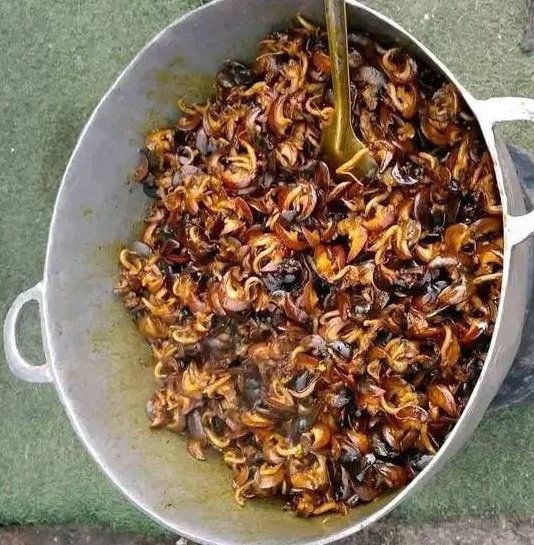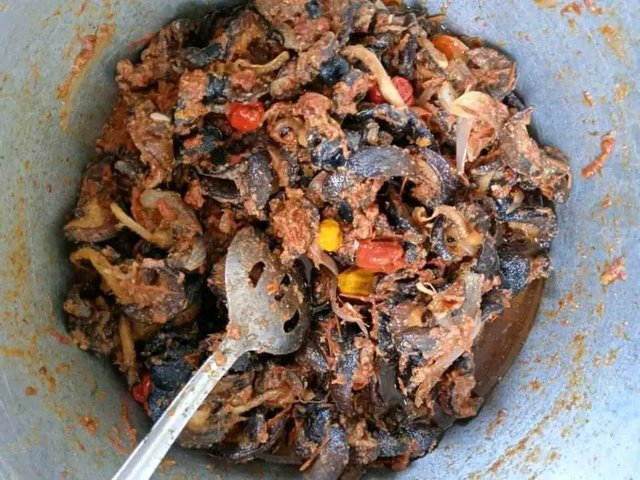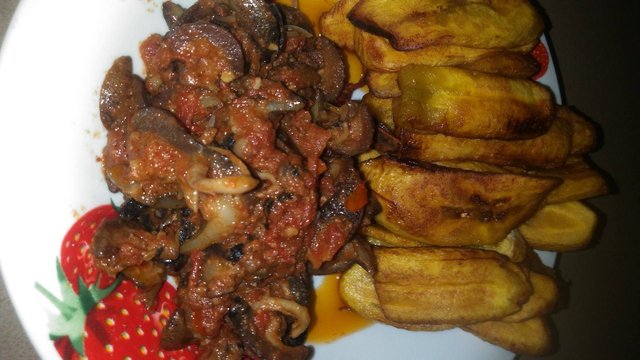Cameroon Traditional Culinary , A Taste of Snail Sauce.
Steem greetings, guys from the motherland of Cameroon and welcome to my blog. It's been a busy week for me with work, but I'm glad to have finalised everything. Yesterday, after work, I came across one of my colleagues buying snails to prepare food at her place and was inviting me over to share. You know that look on your face at first glance when it sounds strange in your ears, someone asking you to eat something you consider not healthy, to your liking. I imagine how people enjoy eating snails, again, on a second thought, my colleague reminded me that "...never say never", maybe who knows, one day there might be a change of mind, but for me, it's a no for and I will never change my mind to eat snails no matter how convincing it is. When I came back home, I decided to learn more about snails during a discussion with my neighbour, and I decided to write this post.

Looking into the culinary world of Cameroon, one will notice that Cameroon is blessed with diverse foods due to the over 250 ethnic groups, with each having its own delicacy. Snails are highly consumable as a traditional food due to their nutritional benefits, especially by the Southwesterners and Westerners, as a result of the dense forest region. The consumption of snails is not only a testament to Cameroon’s rich biodiversity but also a part of the country’s cultural heritage, intertwined with local customs, celebrations, and culinary practices.

Snails are highly cherished and are used in a variety of traditional dishes, and also consumed as street snacks as vendors grill them in the form of soya. They are highly regarded for their taste, often used in stews, soups, and grilled preparations. Walking on the streets in Cameroon, it is common to see vendors selling snacks as a common street snack marinated with spices and grilled on sticks. It is a good source of income for many low-income households as they move around the forest areas and pick them for free. Guys, when I talk about picking them around the dense forest areas for free, one will think it is cheap, but let me shock you that it is one of the most expensive proteins in the market nowadays. The reason why many have become snail farmers and rear them in larger quantities to supply big restaurants and even export to other countries.

In Cameroon's traditional cuisine, where nutrition is highly considered in traditional food preparation, snails are valued for being a high-protein, low-fat food source. They contain amino acids, good for muscle development and tissue repair. Snails are also a source of vitamins and minerals, including iron, calcium, and magnesium, all of which are vital for maintaining healthy bones, blood circulation, and nerve function. It has medicinal properties which are used in the treatment of hypertension and digestive issues.

In sum, snails in Cameroon cuisine not only symbolise a good nutritional meal, but they are deeply embedded in the culture, contributing to both the nutrition and economy of the nation. Whether served in a rich stew or grilled, snails represent a flavour of Cameroon’s diverse culinary world that continues to be cherished by many Cameroonians and visitors coming to the country.
chriddi, moecki and/or the-gorilla
Your support is highly appreciated.
Wow, this is really insightful! I’ve always known snails were a delicacy in many African cultures, but I didn’t realize how packed they are with nutrients. It’s amazing how traditional Cameroonian cuisine combines flavor with such powerful health benefits. The part about snails helping with hypertension and digestion really caught my attention. In my country Nigeria especially the riverine areas there are lots of snails and can also be used to prepare a delicious food called fisherman soup. Thanks for sharing this traditional food wisdom needs to be celebrated more often